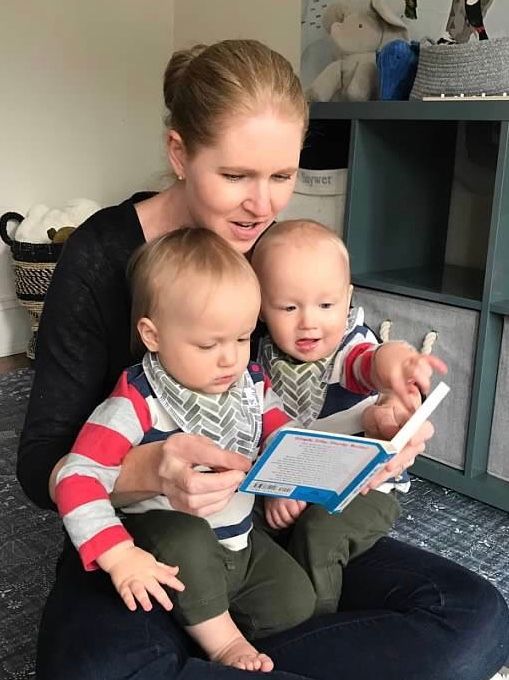How to Help Your Newborn Sleep Better
Welcoming a newborn is magical—but let’s be real, sleep can feel like a distant dream.
If you’re searching for how to help your newborn sleep better, you’re not alone. During the first three months of life—often called the
fourth trimester—babies are still adjusting to life outside the womb.
This stage is filled with love, hormones, and sleepless nights—and it’s okay if you’re feeling a little overwhelmed.
In this guide, you’ll find gentle, realistic newborn sleep tips that support both baby and parent, so you can get more rest without unrealistic expectations or rigid schedules.
Whether you’re struggling with short naps, frequent night wakings, or soothing your overtired newborn, this post has the support you need.
Dear tired parent:
If you’re holding your newborn and wondering, “Is this normal?”—yes. It is.
Newborn sleep can be wildly unpredictable and emotionally draining. As a postpartum doula and pediatric sleep consultant, I want to gently remind you:
You are not alone—and you are not doing anything wrong.
The first three months aren’t about creating the “perfect” sleeper. They’re about survival, bonding, and slowly tuning in to your baby’s unique needs while giving yourself plenty of grace.
What Makes Newborn Sleep So Different?
Newborns aren't born knowing how to "sleep through the night" -in fact, they have short, light sleep cycles and no internal clock to differentiate day and night. Their brains and bodies are still developing, and they’re biologically wired to wake often for nourishment, comfort, and connection.
Here's what's completely normal during the first 12 weeks:
- Wake every 2–3 hours (or more) to feed
- Sleep in short, light cycles
- Prefer sleeping close to a parent (like on your chest)
- Sleeping at irregular times throughout the day and night.
These are not bad habits-they are biological needs and signs that your baby
is growing, and adjusting to life outside the womb-exactly as they should.
What to Expect Month by Month
Weeks 0–4: The Survival Zone
In the first month, life outside the womb is a big adjustment for your baby-and for you.
Sleep during this stage isn't about schedules or routines. This stage is all about meeting your baby’s immediate needs for nourishment, closeness, and comfort.
During this time, you can expect:
- Frequent wake-ups for feeding (every 2–3 hours)
- Sleep that happens in shorter bursts, often in your arms or on your chest
- A strong need for physical closeness, especially for naps
- No clear distinction yet between day and night
Here’s when extra support could help:
If you’re feeling completely overwhelmed by sleep deprivation, struggling with anxiety around sleep, or unsure how to even begin creating small, sustainable rhythms, working with a sleep consultant can provide clarity and compassionate support.
Click here to schedule a free 15-minute call with me.
Weeks 5–8: Alertness Increases, Sleep Becomes Tricky
Your baby is becoming more alert and aware of the world—and that can make sleep a bit harder to achieve. Even if you’re following wake windows and offering rest at the right times, your baby may resist naps or nighttime sleep.
Around week 6, some babies start to offer a longer nighttime stretch—sometimes sleeping 5 to 6 hours at a time.
This can feel like a big turning point, but it’s important to remember that every baby is different. Some babies continue waking every few hours for a bit longer—and that’s completely normal too.
During this time, it’s common to notice:
- Fussiness peaking in the evenings (the “witching hour”)
- More difficulty settling to sleep, even when tired
- Some longer nighttime stretches beginning around 6 weeks (although it's ok if you're not yet)
- Frequent waking during growth spurts
Here’s when extra support could help:
If your baby seems constantly overtired, struggles to settle even with lots of support, or if you’re feeling burned out and unsure what’s developmentally appropriate, a virtual sleep consultation can help you find a gentle, responsive path forward.
Click here to schedule a free 15-minute call with me.
Weeks 9–12: Early Rhythms Begin to Emerge
As your baby’s brain and body continue to grow, early patterns around sleep may start to show.
Some babies begin linking sleep cycles and offering longer nighttime stretches—but it’s still normal for sleep to feel inconsistent during this time.
During these weeks, you might notice:
- Some longer nighttime stretches mixed with frequent wake-ups
- More clear signs of sleepiness and fatigue
- Greater need for consistent naps to prevent overtiredness
Here’s when extra support could help:
If your baby’s sleep is starting to feel even more unpredictable, or you’re ready to gently introduce sustainable sleep habits, personalized newborn sleep support can help ease the transition into more restful nights.
Click here to schedule a free 15-minute call with me.
A gentle reminder:
Every baby’s sleep journey is different.
Comparison is the thief of joy—trust your instincts and your baby’s own beautiful timeline.
Gentle, Low-Pressure Tips for Supporting Newborn Sleep
You don’t need a strict routine or sleep plan right now—but you can begin exploring simple sustainable habits that may help lay the groundwork for more restful sleep later. Think of these as invitations, not expectations.
Here are five tips that may support your baby’s sleep (when you’re ready):
1. Offer Frequent Daytime Feeds (aka “Tank Baby Up”)
After about 4–6 weeks, babies generally need 28–32 oz in a 24-hour period. Offering feeds every 2–3 hours during the day (even waking baby if needed) helps them meet most of their nutritional needs in the daytime hours—and may support longer sleep stretches at night.
2. Explore a Flexible EAT – PLAY – SLEEP Rhythm
Once your baby is alert enough to tolerate some short awake periods, you can gently introduce a rhythm of feeding, followed by a little interaction—like a diaper change, tummy time, or talking to your baby—before sleep. This can help reduce overtiredness and slowly begin to separate feeding from falling asleep, if and when your baby is ready.
Not sure what your baby’s cues are or how to build a rhythm that doesn’t feel rigid?
Download my free guide:
Overwhelmed to Empowered: Understanding Your Baby’s Cues and Creating Flexible Routines—it’s filled with simple, reassuring guidance to help you tune in and find a flow that works for your unique baby.
3. Offer at Least One Nap a Day in a Safe, Flat Sleep Space
It’s perfectly okay if many naps happen in your arms or the carrier! But if it feels manageable, try offering one nap a day in the crib or bassinet. This helps your baby get used to their sleep space over time and supports safe sleep habits in a slow, sustainable way.
4. Use Positive Sleep Associations
White noise, swaddling, rocking, and a brief bedtime routine are all gentle ways to help your baby feel secure and relaxed. These are not “bad habits”—they’re comfort measures that make sleep feel safe.
5. Give Yourself Grace
The newborn stage is messy, emotional, and exhausting. Some days you’ll rock it. Other days, you’ll feel like you’re barely getting by. That’s okay. If none of this feels possible right now, leave it. You can always come back to it later, when you’re ready.
Common Questions From New Parents
Is it bad if my baby always falls asleep while feeding?
Not at all. Feeding to sleep is biologically normal in the newborn stage.
You can gently shift this later, if needed, when your baby is developmentally ready.
Should I be sleep training my newborn?
No. Formal sleep training isn’t appropriate until closer to 4–6 months, depending on the baby.
Right now, the focus is on nurturing, meeting needs, and laying gentle foundations.
What if my baby will only sleep when held?
This is incredibly common—and it won’t last forever.
You can practice small steps (like offering one bassinet nap) if it feels right, but it’s okay to meet your baby’s need for closeness, too.
When Sleep Feels Really Hard
Some stretches, especially around weeks 5–8, can feel like nothing is working. You’re trying everything, and baby still won’t sleep unless held or in motion. It can even take longer to get your baby to sleep now. If that’s where you are—pause.
Go outside for a walk.
Take a drive.
Call a friend.
You don’t need to stay trapped in a dark room trying to force a nap. Sometimes stepping out of the cycle makes everything feel lighter.
And remember: you can offer the perfect nap environment and still have a baby who won’t sleep.
You are not failing. You are parenting a brand-new human who needs you deeply.
It's ok to ask for help. It's ok to need extra support.
Finding a Rhythm That Works for Your Family
If what you’re doing feels sustainable and loving—it’s working! If you’re feeling exhausted, overwhelmed, or unsure, you don’t have to struggle alone.
As a certified postpartum doula and pediatric sleep consultant, I specialize in gentle, attachment-focused sleep support.
We’ll create a plan that honors both your baby’s needs and your family’s values.
Ready for more restful nights and confident days?
Click here to schedule your free 15-minute discovery call.
Let's walk this path together.
Free Resource for You:
Download:
Overwhelmed to Empowered: Understanding Your Baby’s Cues and Creating Flexible Routines
It’s a simple, supportive guide to help you start tuning into your baby’s signals and building rhythms that feel good—for both of you.
You're Doing Better Than You Think
Your baby doesn’t need perfection. They need you. They need comfort, presence, and responsiveness. And you are already doing so much.
Whether your baby is waking every two hours or starting to stretch out a bit, you’re not behind. You’re right where you need to be.
















